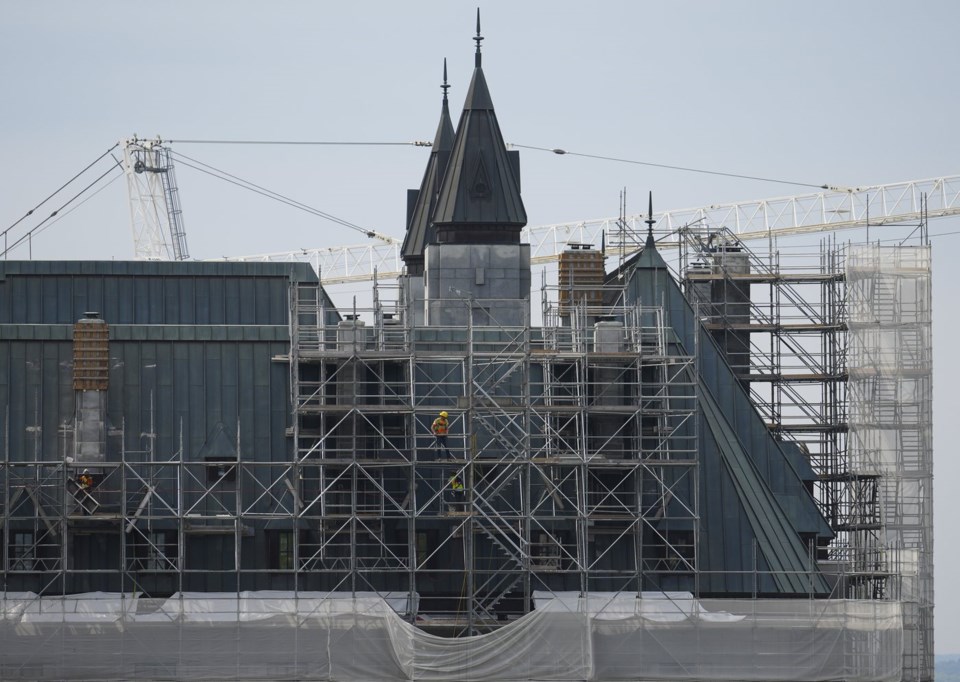The Supreme Court of Canada on Thursday agreed to hear a challenge of Quebec's secularism law, known as Bill 21, which prohibits public sector workers in positions of authority, including teachers and police officers, from wearing religious symbols on the job. Here are some quotes from politicians, advocacy groups and other prominent voices on the subject.
"Quebecers have chosen secularism; it was a collective and legitimate choice that represents the culmination of decades of debate. It is crucial, even vital, for Quebec to be able to make its own choices — choices that align with our history, our distinct social values, and the aspirations of our nation .... Federal government intervention in the Supreme Court (case) would not only be disrespectful but could only be seen as an attack on the autonomy of federated states."
— Written statement from Simon Jolin-Barrette, Quebec justice minister, and Jean-François Roberge, secularism minister
"We will be there as the government of Canada (to intervene at the Supreme Court) .... It’s not just a provincial conversation but a national question. We have to be involved as the government of Canada, because the hearing and decision will have implications on the rights and charters of the provinces — on equality, expression and religion — that will influence and impact all Canadians.
— Arif Virani, federal justice minister
“It’s a law, a populist law, designed to capitalize on popular feelings of angst surrounding religious minorities, particularly women in hijab. It’s a law that divides society, a law that was passed with the express purpose of taking away the rights of select groups of unpopular minorities."
— Stephen Brown, CEO of the National Council of Canadian Muslims, one of the groups challenging Bill 21
“We maintain our original position — that Bill 21 conflicts with our values and our mission and with those of all Quebecers as expressed in the Quebec Charter of Human Rights and Freedoms. Its very adoption was contrary to our societal goal of promoting our peaceful coexistence in a pluralistic Quebec.”
— English Montreal School Board, one of the groups challenging Bill 21.
"The notwithstanding clause is a legitimate clause of (the) Constitution, and one of the meanings of this appeal is to challenge the Canadian Constitution in the Supreme Court. That's quite something."
— Yves-François Blanchet, leader of the Bloc Québécois
“The notwithstanding clause was never intended to be used in this manner, to restrict freedoms, to roll back existing protections and to violate the rights of marginalized and vulnerable communities .... The Charter is not just a piece of paper that can be shredded without consequence.”
— Harini Sivalingam, director of the equality program at the Canadian Civil Liberties Association
"What you need to understand is that the federal government is indirectly funding the challenge to Bill 21 through various organizations arguing that this law absolutely must be abolished. So it's a system we're funding, and it's working against us."
— Paul St-Pierre Plamondon, leader of the Parti Québécois
"This bill has undeniable effects on minority schools in Quebec. I will therefore be filing an application to intervene in this matter before the Supreme Court of Canada to address the interpretation of Section 23 of the Canadian Charter of Rights and Freedoms (which guarantees minority-language educational rights), including with regard to the English-speaking minority's right to manage and control their facilities and instruction."
— Raymond Théberge, commissioner of official languages of Canada
"The Liberal party is always there to defend the Constitution and the Canadian Charter. So I presume that any candidate for Liberal leadership will continue our support as a party and government to protect the rights that are in the Canadian Constitution."
— Arif Virani, federal justice minister
"Law 21 is a discriminatory law shielded by pre-emptive use of the notwithstanding clause. I am glad that finally the federal Liberal government will make the case at the Supreme Court that pre-emptive use of the notwithstanding clause is unconstitutional."
— Anthony Housefather, Liberal member of Parliament from Montreal
“What Bill 21 did was it hindered me from dreaming. I was planning on applying for a position of a principal, and I can no longer do that.
— Bouchera Chelbi, Muslim elementary school teacher in Montreal
This report by The Canadian Press was first published Jan. 23, 2025.
The Canadian Press



